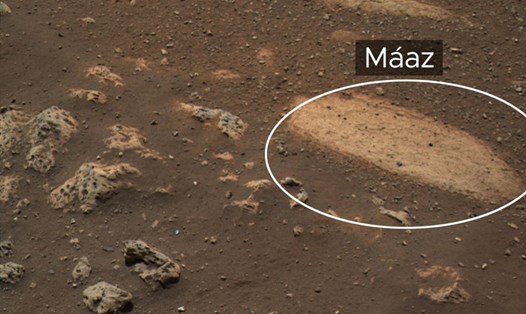According to research published in the journal Proceedings of the National Academy of Sciences in June 2021, watermelon does not originate from the Fertile Crescent region of the ancient Duong Ha region like many other province-based crops.
Susanne Renner, a plant pathologist at Ludwig Maximilian University in Munich, Germany, and her colleagues have conducted a comprehensive genetic explanation of the purified watermelon that is widely grown and sold today along with 6 wild watermelon species.
We found that the modern genetics ofulation watermelon are more closely linked to Sudan wild Watermelon than any other type that we have analyzed, she told Live Science. Sudan wild watermelon has some notable differences from the simply-made version: The meat is white and not very sweet, mainly used as animal feed".
However, genetic similarities between the two have led researchers to conclude that Sudan watermelon is perhaps a predecessor to the purely red and sweet watermelon.
It is possible that ancient farmers have grown non- bitter variations of wild watermelon and therefore increased its sweetness over many generations through the purification process. Red is probably also due to artificial selection, in which farmers can favor and selectively breed red fruits. However, it is unclear when and in civilization this will happen, and Renner has tried to answer.
We know that the ancient Egyptian Pharaoh tutankhamun was buried with watermelon seeds 3,300 years ago, but that is not enough evidence of a certified sweet watermelon. Renner says these nuts can be used as snacks from a wild watermelon.
But then, she found an image of a watermelon-like fruit on a painting of an ancient Egyptian tomb, believed to be over 4,300 years old. The original photo was published in 1912, but no one thought it was a watermelon. In a separate grave, another image shows watermelon cut on a tray with other sweet fruits, such as grapes.
This awareness, along with Renner's genetic discoveries, began painting a picture of the ancient Egyptians enjoying sweet and purified watermelon. That shows that watermelon was most likely naturalized around that time in Egypt or during the trading period of the ancient empire.
The ancient Nubia living in Sudan today are often looked down upon more than the Egyptians, Renner said. It could be that the ancient Nubia naturalized it and traded it with the ancient Egyptians or it could also be the Egyptians, but my research shows that somewhere in this region, watermelon was first naturalized and the ancient Egyptians ate them."
Hanno Schaefer, professor of plant biodiversity at the Technical University of Munich, said that historically, it was a very important discovery. "We have clearly neglected North Africa and focused too much on the Fatty Algeculture region, where grains and nuts (edible legumes) originate, but we need to invest more resources to research North Africa's agriculture and add those findings to archaeological evidence," Schaefer told Live Science.
Research on the wild relatives of industry not only answers historical curiosity, but can also be useful for modern-day livestock farmers and farmers. There are many characteristics of wild populations that can be helpful in breeding watermelon - they are less susceptible to mold, viruses and insects than previously naturalized species, Renner says. Knowing more about the DNA of wild watermelon can help breederes take those beneficial gene variants and plant them in modern plants without affecting the sweetness and redness of watermelon, which took a long time to get through the selective breeding process.
This could allow watermelon cultivation to overcome future challenges brought by climate change, such as droughts and higher temperatures.










